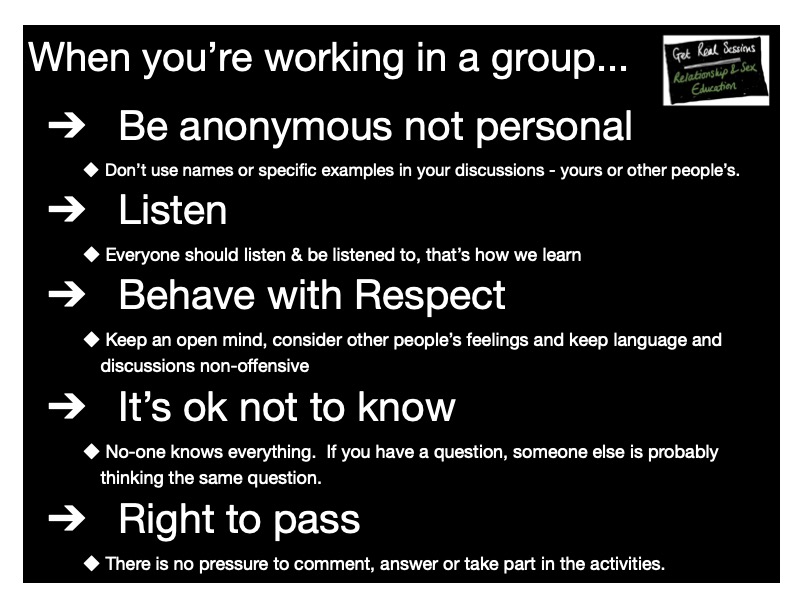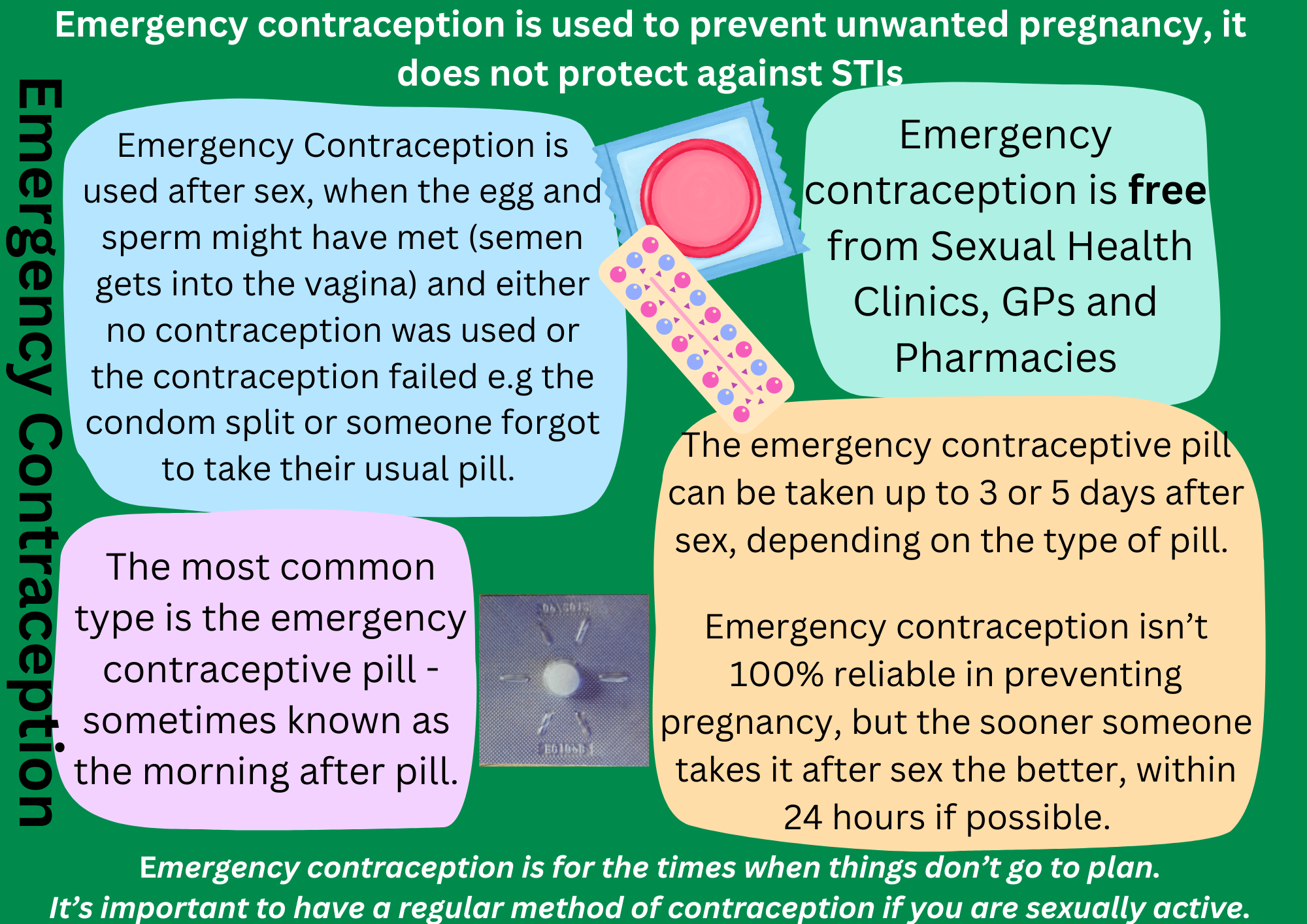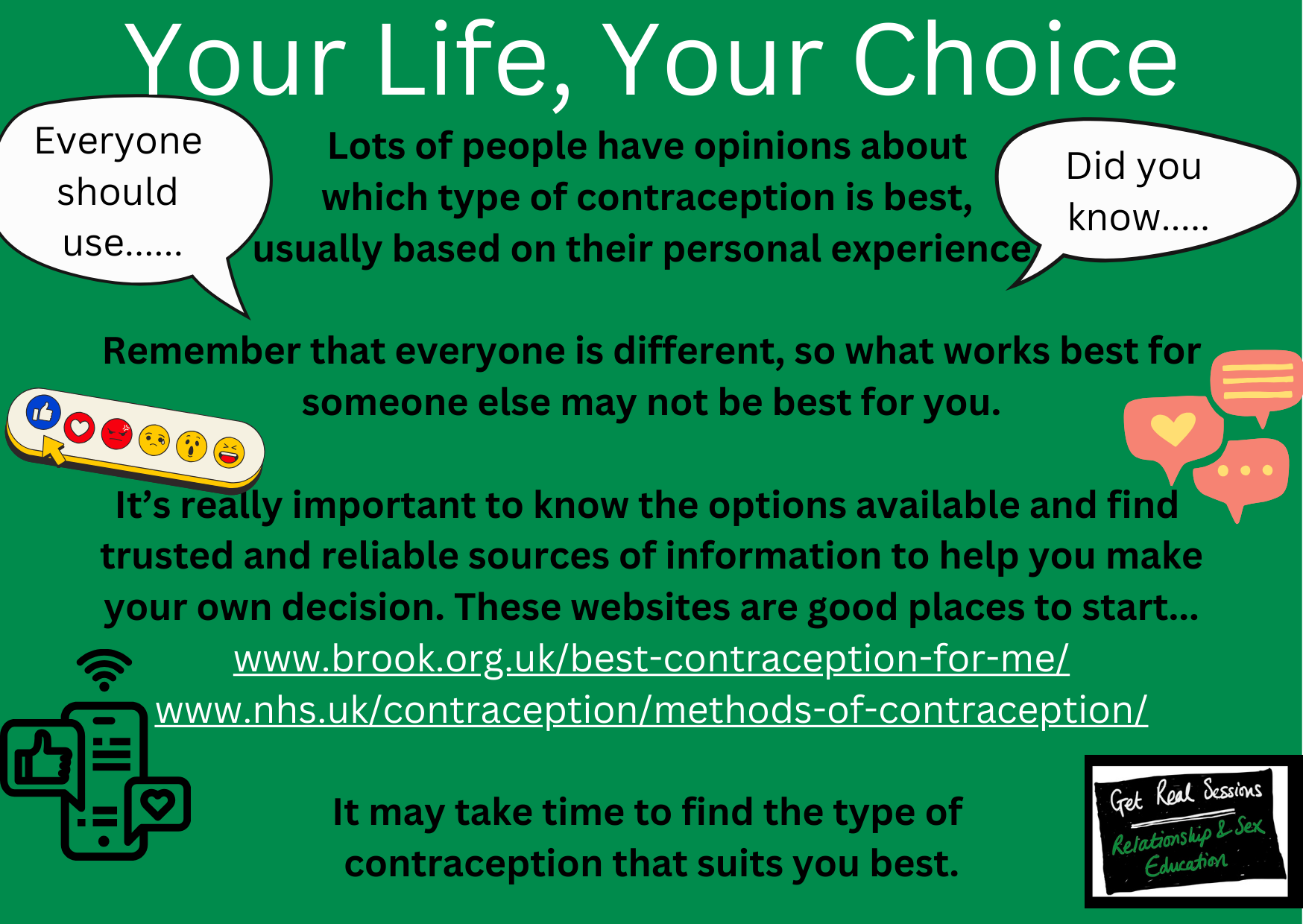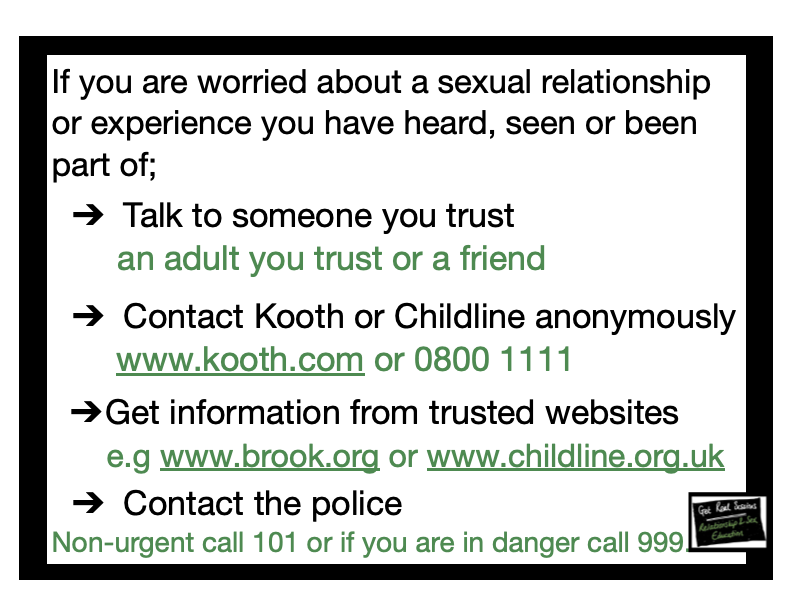In this 4 part series, we are going to cover the key things you need to know about sexual health. This content is brought to you by a specialist in this area, Becky Blackledge, and you can find more information about her work at Get Real Sessions here.
Introduction
This session is about safer sex and looks at contraception, STIs and where someone can get help and support around their sexual health when they need it.
It’s important that when someone is sexually active they are able to look after their own physical sexual health as well as supporting a partner to do the same.
Developing understanding and awareness of sexual health helps a person think about the choices they want to make in their own life.

Contraception
Contraception is something that people use during sex to stop the sperm and the egg from meeting and/or to stop the spread of sexually transmitted infections – also known as STIs.
There are 2 main types of contraception – the barrier method and the hormonal method. Each type of contraception works in a different way, for a different amount of time and is a different percentage reliable when used correctly.
Contraception significantly reduces the chance of pregnancy and spreading STIs but no method of contraception is 100% effective. People may choose to use 2 forms of contraception to protect themselves and/or prevent pregnancy. Some people choose not to have sex.
Task 1
- Create a table like the one below.
| Contraception | How are they used/ taken? | How long do they work for? | How effective are they at preventing pregnancy? | Where can you get this? |
| Condoms | Place over erect penis | Used once then thrown away | 95-98% when used correctly | Supermarkets, GP, Online, Sexual Health Clinic |
2. Add to the table by listing as many different types of contraception as you can think of and fill in the columns as best you can.
3. Think about why someone might choose to use each different type of contraception; what are the pros and cons?
4. Watch the video below to check your answers and add any additional methods.
Contraception is free on the NHS and can be accessed via a GP, Sexual Health Clinic or through some Pharmacies. Lots of areas have specialist sexual health services for young people up to the age of 25. To find sexual health services in your local area visit the nhs website and click ‘Find Contraception Services’.

Condoms
Condoms are the most popular form of contraception and one of 2 methods of contraception that protects against STIs. When used correctly they are 98% effective at preventing pregnancy but some research suggests that in the first year of use condoms are less effective – only 87% – because they aren’t used correctly.
If you are part of sexual activity and there is a penis involved, it’s really important to know how to put on a condom correctly whether it’s your penis or not, because both people need to know that the condom is being used properly.
Watch one of these condom demo animations and listen for the tips and key things to remember.
Demonstration 1
Demonstration 2
People under 25 can get free condoms and lube using the C-Card scheme. A person can register for the scheme with their school nurse, GP, sexual health service or at some pharmacies. Once registered they can get free condoms, lube and advice using a physical or virtual card.
STIs
STIs – sexually transmitted infections – are infections that are passed from one person to another during sexual contact. The infection is passed between body fluids during vaginal, anal or oral sex – they can also be passed on through skin to skin contact. It is quite unlikely that you will get an STI from kissing someone.
There are several different types of STIs, some have obvious symptoms but some have very few or no symptoms, so it is possible to have an STI and not realise it at all. The only types of contraception that protects against STIs are condoms or dams.

Task 2- A quiz to check your understanding
Follow this link and take the STI quiz. Try to have a go at the answer before revealing it!
Your sexual health is part of your wellbeing – just as you look after your physical health and your emotional and mental health it’s important to look after your sexual health.
It can be difficult to think about the future and how your choices now might affect your future. An STI without any symptoms, isn’t affecting someone’s life now, but if it’s not found (through testing) and treated, (with antibiotics or other medication), STIs can cause long term health issues and affect fertility – whether someone can get pregnant or the quality of their sperm.

For more information about Contraception and STIs visit brook.org or nhs.uk or talk to your school or college nurse.
Remember…

This has been part 2 of a 4 part section covering Sexual Health. Click the button below to move onto the next part:
